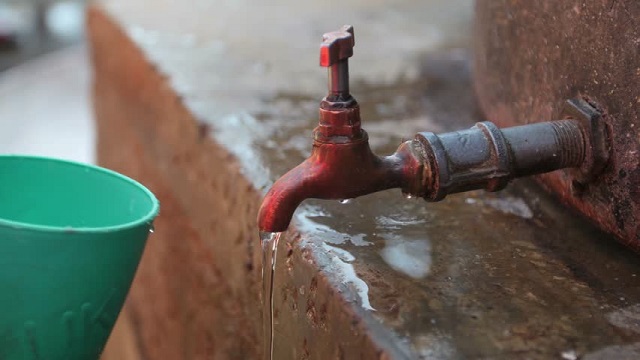
Kampala, Uganda | THE INDEPENDENT | Kampala has been listed among cities with unaffordable, undrinkable and extreme water stress for their population. This is according to a report released today by the World Resources Institute, an American global research organization.
The report indicates that the crisis has been largely ignored by municipal and utility suppliers such as the Kampala Capital City Authority (KCCA) and the National Water and Sewerage Corporation (NWSC).
Among its key findings is the inequality in access to safe water for residents of Kampala living in slum areas, where millions have access only a few hours a day to poor quality water, while others are forced to pay up to a quarter of monthly household income for private provision
Data, in relation to Kampala’s water supply, was collected from Kalimali communal sanitation block in Bwaise, Namuwongo, Nateete, Kalerwe and Kyebando, all in the outskirts of Kampala. The settlements form combinations of intermittent, undrinkable and un-affordable water supply for the inhabitants.
Shuaib Lwasa, an associate Professor in Makerere University’s School of Forestry, Environment and Geographical Science, who participated in data collection for the report, told Uganda Radio Network in an interview that they found that communities with piped water systems spend only 3.6 per cent of their monthly income on water unlike their counterparts in slums.
According to the report, although the cost of connecting premises to piped water in Kampala stands at 129,600 Shillings, demand has surpassed the supply so much so that 60 per cent of the population living in slum areas are not reached with clean water supply. It states that the number of Piped water connections in Kampala increased by 2.3 per cent between 2006 and 2015.
Diana Mitlin, the Professor of Global Urbanism at Manchester University and Principal Researcher for Uganda and Africa says municipal and utility suppliers observe fundamental but ignore crisis around access, affordability and consequential health crisis resulting from Piped water system contamination when water flow is discontinued.
It recommends that water supply in the 15 cities surveyed be made regular through integrated approaches of water supply. The other is to inform residents that water will be discontinued for them to store enough.
Professor Victoria Beard, a fellow at the World Resources Institute says the crisis has been ignored contrary to monitoring reports by UNICEF and the World Health organization pointing to the fact that the Millennium Development Goal on water and Sanitation has been met in most cities.
“Cities need to rethink how they view equitable access to water,” Victoria A. Beard said, adding that in many developing countries where urban residents lack access to safe, reliable and affordable water on a daily basis, governments have made huge strides in guaranteeing universal access to primary education as a result of political commitment.
“The solutions are not high tech. We know what needs to be done,” She affirmed.
The report recommends diversifying the centralized water supply network operated by the National Water and Sewerage Corporation to introduce a hybrid system involving water harvesting technologies, Private sector players to invest in Kiosks and communal purification plants as well as proper management of wastewater.
The World Health Organization reports that investing in universal drinking water coverage in urban areas would cost USD 141 billion over five years. But total global economic losses from unsafe water and sanitation systems are estimated to be at least 10 times greater, at USD 260 billion per year during the same period.
“Without changes, the number of people receiving intermittent or poor-quality water will increase in the years ahead, due to rapid urbanization, increased water scarcity resulting from climate change, and general underinvestment in water infrastructure,” said Ani Dasgupta, global director of WRI Ross Center for Sustainable Cities.
“This will have huge costs for people and the economy. Cities must take actions now to guarantee all urban residents’ access to safe, reliable water in the future.”
*****
URN
 The Independent Uganda: You get the Truth we Pay the Price
The Independent Uganda: You get the Truth we Pay the Price


